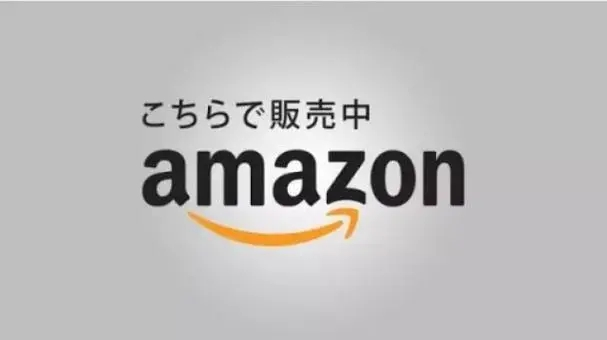#New regulations for foreign trade in July
1.Starting from July 19th, Amazon Japan will ban the sale of magnet sets and inflatable balloons without the PSC logo
2. Türkiye will raise the toll in the Turkish straits from July 1
3. South Africa continues to levy taxes on imported screw and bolt products
4. India implements a quality control order for footwear products from July 1st
5. Brazil exempts import tariffs on 628 types of machinery and equipment products
6.Canada implemented revised import requirements for wooden packaging materials from July 6th
7. Djibouti requires mandatory provision of an ECTN certificate for all imported and exported goods
8. Pakistan lifting import restrictions
9..Sri Lanka lifts import restrictions on 286 items
10. UK implements new trade measures for developing countries
11. Cuba Extends the Tariff Concession Period for Food, Sanitary Products, and Medicines Carried by Passengers upon Entry
12. The United States proposes a new bill to abolish tariff exemptions for Chinese e-commerce goods
13. UK initiates a transitional review of dual countermeasures against electric bicycles in China
14.The EU has passed the new battery law, and those who do not meet the Carbon footprint requirements are prohibited from entering the EU market

In July 2023, a number of new foreign trade regulations will come into force, involving restrictions on imports and exports of European Union, Türkiye, India, Brazil, Canada, the United Kingdom and other countries, as well as customs tariffs.
1.Starting from July 19th, Amazon Japan will ban the sale of magnet sets and inflatable balloons without the PSC logo
Recently, Amazon Japan announced that starting from July 19th, Japan will modify the "Other Products" section of the "Restricted Product Help Page". The description of magnet sets and balls that expand when exposed to water will be changed, and magnetic entertainment products without the PSC logo (magnet sets) and absorbent synthetic resin toys (water filled balloons) will be banned from sale.
2. Türkiye will raise the toll in the Turkish straits from July 1
According to the Russian satellite news agency, Türkiye will increase the travel fees of the Bosporus Strait and the Dardanelles Strait by more than 8% from July 1 this year, which is another increase in Türkiye's prices since October last year.



3. South Africa continues to levy taxes on imported screw and bolt products
According to a WTO report, the South African International Trade Commission has made a positive final ruling on the sunset review of the safeguard measures for imported screw and bolt products, and has decided to continue taxation for three years, with tax rates ranging from July 24, 2023 to July 23, 2024 of 48.04%; 46.04% from July 24, 2024 to July 23, 2025; 44.04% from July 24, 2025 to July 23, 2026.
4. India implements a quality control order for footwear products from July 1st
The quality control order for footwear products, which has been planned for a long time in India and has been postponed twice, will be officially implemented from July 1, 2023. After the quality control order takes effect, the relevant footwear products must comply with Indian standards and be certified by the Bureau of Indian Standards before being labeled with certification marks. Otherwise, they cannot be produced, sold, traded, imported or stored.
5. Brazil exempts import tariffs on 628 types of machinery and equipment products
Brazil has announced the exemption of import tariffs on 628 types of machinery and equipment products, which will continue until December 31, 2025.
The tax exemption policy will allow companies to import machinery and equipment products worth over $800 million, benefiting enterprises from industries such as metallurgy, electricity, gas, car manufacturing, and paper making.
It is reported that among these 628 types of machinery and equipment products, 564 are in the manufacturing industry category and 64 are in the information technology and communication category. Before implementing the tax exemption policy, Brazil had an import tariff of 11% for this type of product.
6.Canada implemented revised import requirements for wooden packaging materials from July 6th
Recently, the Canadian Food Inspection Agency released the 9th edition of the "Canadian Wood Packaging Materials Import Requirements", which came into effect on July 6, 2023. This directive stipulates the import requirements for all wood packaging materials, involving wood padding, pallets or Flat noodles imported from countries (regions) outside the United States to Canada. The revised content mainly includes: 1. Developing a management plan for ship borne bedding materials; 2. Revise the relevant content of the directive to be consistent with the latest revision of the International Plant Quarantine Measures Standard "Guidelines for the Management of Wooden Packaging Materials in International Trade" (ISPM 15). This revision specifically states that according to the bilateral agreement between China and Canada, wooden packaging materials from China will not accept plant quarantine certificates upon entry into Canada, and only recognize the IPPC logo.

7. Djibouti requires mandatory provision of an ECTN certificate for all imported and exported goods
Recently, the Djibouti Port and Free Zone Authority issued an official announcement that from June 15, 2023, all goods unloaded at the Djibouti port, regardless of the final destination, must have an ECTN (Electronic Cargo Tracking List) certificate.
8. Pakistan lifting import restrictions
According to the notice issued by the State Bank of Pakistan on its website on June 24, the country's order restricting the import of basic products such as food, energy, industrial and agricultural products was immediately revoked. At the request of various stakeholders, the ban has been lifted, and Pakistan has also revoked the directive requiring prior permission for the import of various products.
9.Sri Lanka lifts import restrictions on 286 items
The Sri Lankan Ministry of Finance stated in a statement that 286 items that have lifted import restrictions include electronic products, food, wooden materials, sanitary ware, train carriages, and radios. However, restrictions will continue to be imposed on 928 items of goods, including the ban on car imports starting from March 2020.
10. UK implements new trade measures for developing countries
Starting from June 19th, the UK's new Developing Countries Trading Scheme (DCTS) has officially come into effect. After the implementation of the new system, the tariffs on imported bed sheets, tablecloths, and similar products from developing countries such as India in the UK will increase by 20%. These products will be levied at the 12% most favored nation tariff rate, rather than the 9.6% universal preferential measure tax reduction rate. A spokesperson for the UK Department of Commerce and Trade stated that after the implementation of the new system, many tariffs will be reduced or cancelled, and the rules of origin will be simplified for developing and least developed countries that benefit from this measure.
11. Cuba Extends the Tariff Concession Period for Food, Sanitary Products, and Medicines Carried by Passengers upon Entry
Recently, Cuba announced an extension of the tariff preferential period for non commercial food, hygiene products, and drugs carried by passengers on their entry until December 31, 2023. It is reported that for imported food, hygiene supplies, drugs, and medical supplies included in passengers' non carry-on luggage, according to the value/weight ratio stipulated by the General Administration of Customs of the Republic, customs duties can be exempted for items with a value not exceeding 500 US dollars (USD) or a weight not exceeding 50 kilograms (kg).

12. The United States proposes a new bill to abolish tariff exemptions for Chinese e-commerce goods
A bipartisan group of lawmakers in the United States plans to propose a new bill aimed at abolishing the widely used tariff exemption for e-commerce sellers shipping goods from China to American shoppers. According to Reuters on June 14th, this tariff exemption is known as the "minimum rule", according to which American individual consumers can waive tariffs by purchasing imported goods worth $800 or less. E-commerce platforms, such as Shein, an overseas version of Pinduoduo, founded in China and headquartered in Singapore, are the biggest beneficiaries of this exemption rule. Once the aforementioned bill is passed, goods from China will no longer be exempt from relevant taxes.
13. UK initiates a transitional review of dual countermeasures against electric bicycles in China
Recently, the UK Trade Relief Agency issued an announcement to conduct a transitional review of anti-dumping and countervailing measures against electric bicycles originating in China, in order to determine whether the aforementioned measures originating from the European Union will continue to be implemented in the UK and whether the tax rate level will be adjusted.
14. The EU has passed the new battery law, and those who do not meet the Carbon footprint requirements are prohibited from entering the EU market
On June 14th, the European Parliament passed the EU's new battery regulations. Regulations require electric vehicle batteries and rechargeable industrial batteries to calculate the Carbon footprint of the product production cycle. Those that do not meet the relevant Carbon footprint requirements will be prohibited from entering the EU market. According to the legislative process, this regulation will be published in the European Notice and will come into effect after 20 days.
Post time: Aug-01-2023





